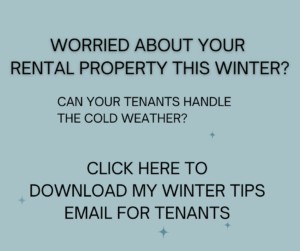Tips For How To Handle A Tenant Who Is Not Paying Rent Due To Covid 19
Tenant Not Paying Rent Due To Covid 19
As of the date of this post, courts are beginning to open back up in many areas. So, this answer will fit what is going on right now.
Times are tough right now for landlords and tenants. Everyone has a different idea on how to proceed. There is a lot of debate about what is “right”. To say the least, this is a very hot topic. Most tenants do not understand that landlords are not wealthy and there is a mortgage on the property that the tenant is living in. So, when the tenant can’t pay, the landlord can’t pay the mortgage. Many landlords are struggling just like tenants.
The bad news is that, unfortunately, there is not a lot you can do right now about non paying tenants. This is going to be disastrous for many landlords who depend on the rent to pay the bills. It can be very frustrating to watch the news and hear so many people insisting on rent forgiveness. It seems like a lot of people are painting the landlord as the bad guy. The bottom line is that no landlord decided to have rental property just so it could be rented for free. Owning rental property is a business. The income is counted on by most landlords just to be able to keep the property.
I am lucky. Most of my tenants are paying. The majority of my tenants who couldn’t pay contacted me and explained their situation. Most were waiting on their unemployment and/or their stimulus check. It is much easier mentally and emotionally to help these tenants out as they were proactive.
When reviewing the non paying accounts, I realized early on that many tenants who were not paying were the same ones who either paid very late every month or were tenants I had to send 7 day letters on to actually get paid.
Dealing With A Non Paying Tenant
Communication is key with non paying tenants. When this first started, I made sure that I spoke with every tenant not paying rent. If you have not done this yet, then I recommend you do it today! The good paying tenants were very embarrassed and there were a lot of tears. But, they are at least making an attempt to pay something.
As for the few tenants that are not paying at all, they literally have no money to pay their rent with. Some are not eligible for unemployment and used their stimulus money to pay utilities and buy groceries. Others, especially my commercial tenants, have tried to get business loans but have either been denied or have not received the money yet. I have both residential and commercial tenants so their ability to pay the rent depends on a number of things. The commercial tenants who have restaurants or other businesses are hurting the most. There is nothing I can do until evictions can be filed. I am staying in touch with them though.
I have one tenant who has indicated that he doesn’t intend to pay until I make him. I have reminded him that the rent will have to be paid eventually. I told him that if he doesn’t, once I can file an eviction, I will be filing on him. He told me to go for it.
Two of my tenants had heard on the news that they didn’t have to pay rent. They really thought that the moratorium on rent meant that they didn’t have to pay at all! Once I informed them that what they heard wasn’t reality and that they would owe all of the rent eventually or be evicted, they paid. One laughed and said he thought that was too good to be true!
For the tenants who are chronic problems, you either have to figure out how to get them back on track or evict them them once you can. That is something you will have to decide. Sometimes it is cheaper to work with these tenants than to evict them but if they are four to six months behind on the rent, there is really no way they will be able to get caught up.
Can I Evict For Issues Other Than Non Payment?
The answer is that yes, you can. If you have other issues that are related to tenant not paying rent, find out what the rules are in your area first. In my area, I can send them a Cease and Desist and then file an eviction if the situation has not been rectified. I am in the process of doing this with tenants in an apartment building. They have been disturbing all of the neighbors with their cussing and fighting at all hours of the day and night. I sent the Cease and Desist notice and they were shocked that they received it. After talking with them, I was able to get them to agree to move out. I got lucky. Stay tuned though because they aren’t out yet!
The biggest issue is that the courts are backed up. A real estate attorney attended our local Real Estate Investor group meeting (online) at the end of May and said that while the courts are opening back up, there is a 6 to 8 week back log of existing court cases. But, at least you can do something and put them on notice to straighten up or they will be evicted.
Also, make sure your lease has a “peaceful enjoyment” clause in it. This makes it easier to evict tenants who are loud and are disturbing the neighbors.
Action Steps
Keep in mind that most tenants are not bad people. Many have been blindsided by the furlough or loss of a job. Some are literally frozen in place and have no idea how to move forward. Sometimes you can help them by talking with them and being empathetic. That doesn’t mean you turn a blind eye to your business!
- Review all non paying tenant accounts and those with balances
- If you have not done so already, contact all of them
- Keep detailed notes about what each one said
- Set up payment plans when possible
- Follow up monthly to see what is going on
- When you know the date courts open back up, notify your tenants that eviction filings are resuming
- Schedule your 7 day letters to go out when appropriate
- File your evictions as soon as you are allowed to
Resources
Did you know that Covid 19 relief funds are available to tenants? If you haven’t already done so, find out what resources are available in your area. Compile a list of resources with phone numbers and either email or physically mail them to your tenants. When I talk to tenants on the phone, I give them the resources I have and instruct them to also go online and see what they could fine.
I found out about some programs when representatives from local organizations called me to verify information for a tenant. I then got the information I needed from that person to pass onto my other tenants. In my area, local churches offer rent and utility assistance year round. Many of my tenants were able to pay their rent with these resources.
Trust me when I tell you that it is well worth your time and effort! The last time I checked, I had received over $7,000 in rent!
Finally . . .
Hang in there. This won’t last forever. Work with the tenants you can and evict the ones who cannot get caught up. Keep in mind that unless the tenant has kept the property in great shape, you are going to have to make repairs at the very least. If the tenant has been there a long time, you may have to completely redo the unit. Can you afford to do that? I don’t know the answer to that, only you do. You need to weigh the cost of working with a tenant with the cost of evicting this person and having a vacant unit needing repairs.






